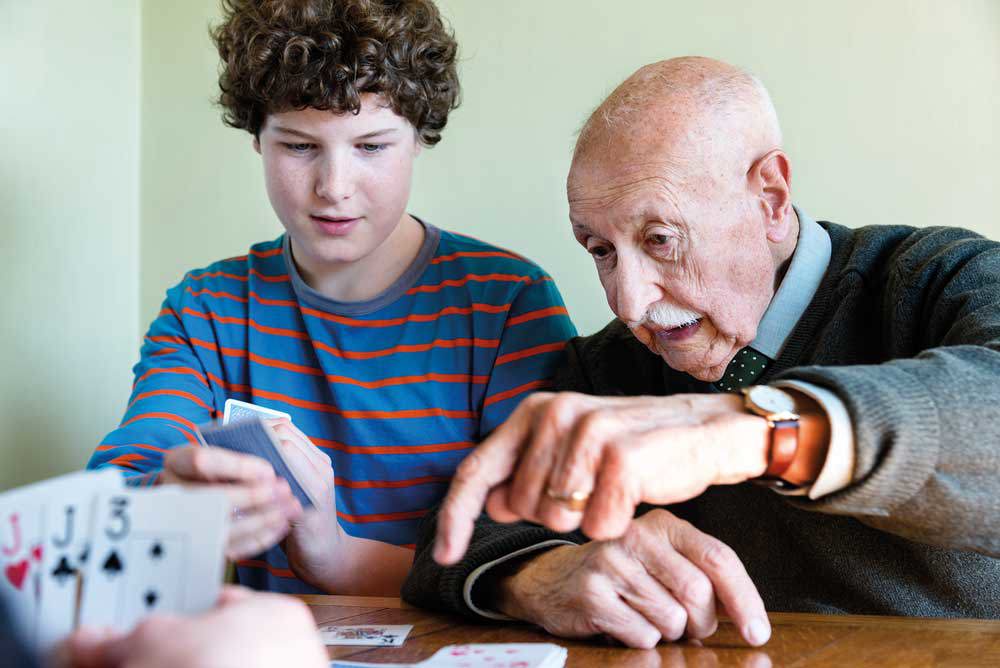
In New Zealand two out of three people are affected by dementia, either personally or through a friend or family member. Around 60,000 people live with dementia nationally but this is expected to rise to 154,000 by 2050 [1].
“The small things you do can make a real difference to someone living with dementia, like taking time to talk with someone, breaking down information into small chunks and sharing a smile,” says Bupa Dementia Advisor, Beth McDougall.
Alzheimer’s is the most common form of dementia but there are more than 100 different types which affect people in different ways. The most common symptoms are: forgetfulness, which can include getting lost in familiar places, a reduced ability to communicate and problems with movement and balance.
"The challenge is to work out what the person is telling us through their behaviour."
Beth McDougall
Dementia can also affect reasoning, information processing and learning. So a person living with dementia may take longer to understand.
Try to observe behaviour as well as what’s said. “A person living with dementia will use behaviour to communicate, so all behaviour has meaning,” says Beth “The challenge is to work out what the person is telling us through their behaviour.”
Dementia is not a normal part of ageing and people as young as 40 can sometimes develop the symptoms. Remember that people living with dementia have individual needs and histories, just like everyone else. Try to see the individual and not just the dementia.
Reduce noise
Reduce unnecessary distractions or background noise, such as television. Move away from group situations.
Speak clearly
Use clear, simple words. Keep conversations brief to help the person follow the thread of the discussion.
Avoid open questions
Try not to ask open questions such as, “What would you like?” Instead ask, “Would you like some cake?” Use real names for people and objects rather than “it” or “them”.
Active listening
Listen carefully and give the person plenty of time to find the right words to reply. Avoid finishing the person’s sentences. Instead, if they are struggling to find words, prompting them might help if the situation provides a clue about what they are trying to say.
Body language and voice
Face the person and address them by name if possible. Eye contact communicates that you’re listening while a gentle voice and smile shows you’re non-threatening.
Encourage
Don’t say things like: I’ve already told you that. If the person repeats themselves, they may have forgotten what you asked. Show that you have heard and encourage them to say more. The person will only ask the question again because they do not know the answer.
Reduce anxiety
Avoid getting frustrated. The person may feel anxious, confused or self-conscious so stay calm. Try to accept what they say as their truth. If the person does become threatening, moving away may defuse the situation.
Want to read more? Download our communicating and connecting booklet.

